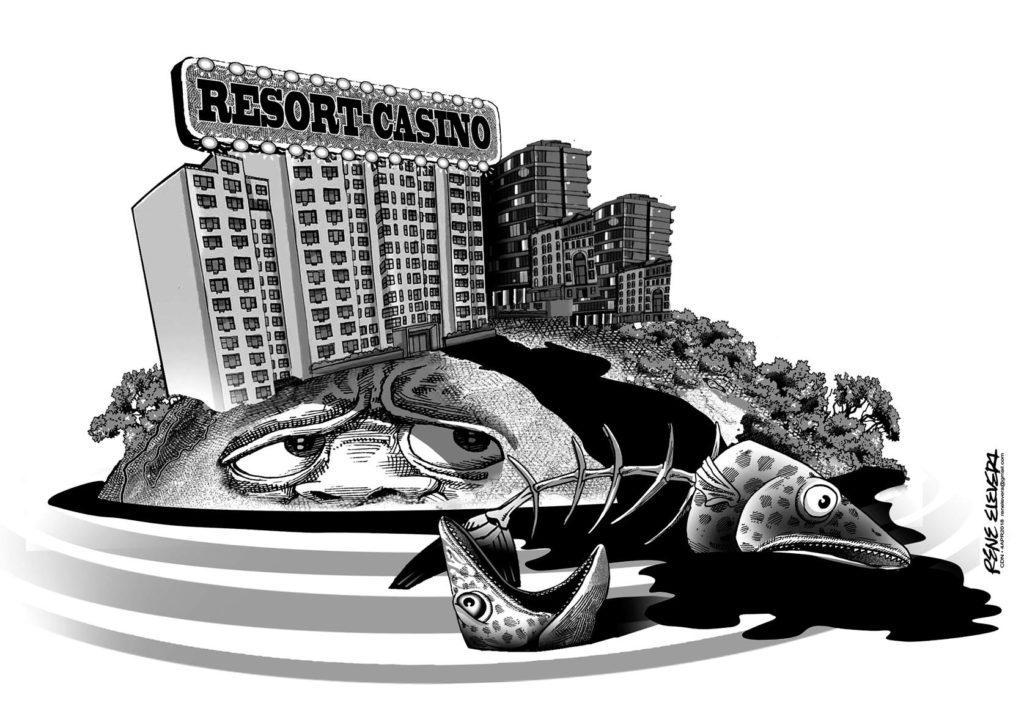
An urban planner’s opposition to plans by the government to set up a casino resort on Boracay Island should concern tourism stakeholders in both Cebu and Bohol which are competing for foreign tourism currency along with other cities and provinces in the country.
In voicing his opposition to the project, architect Felino “Jun” Palafox said a casino resort may damage the white sand beaches of Boracay which is already under fire for the water pollution caused by its resort and hotel owners that were unchecked by the local government.
Palafox’s opposition is shared by Boracay’s tourism stakeholders who said their island is known for white sand beaches and as such, is a “wholesome destination for beach lovers” as they put it.
If such were the case, then the stakeholders should have taken better care of the island in the first place to avoid its deterioration and a planned closure that will pave the way for a six-month rehabilitation plan.
Again, these developments on Boracay Island should have a bearing on how Cebu’s tourism stakeholders should map out their programs for this year considering that a closure would mean a windfall for them and other neighboring provinces.
Hence why Sta. Fe Mayor Jose Esgana made such a big deal over the volume of garbage left behind by the town’s visitors who spent their Holy Week vacation there.
Despite the P30 ecological fee that the municipal government charges its visitors for any garbage not properly disposed of, we wonder if the Sta. Fe municipal government had been quite as stringent with their visitors even before President Rodrigo Duterte threatened to close down Boracay Island.
There’s no shortage of beaches in the provinces of Cebu and Bohol and if it’s casinos the foreign tourists want, there are plenty in Metro Cebu.
In fact, one is planned for construction at the Kawit Island area in the South Road Properties (SRP) though it is under deliberation at the Cebu City Council.
Instilling a proactive mindset among Cebu-based residents and visitors in waste segregation is but one of several ways in which the province can improve on its tourist attractions, and it’s already a given in other countries which place a premium on tourism as a key industry in their economies.
And as the casino resort controversy in Boracay showed, it’s also important for local officials to know which industry is appropriate for which tourism destination in a city, town or province and to remind the national government of their tourism development perspective in their respective communities.
Stakeholders should also make their voices heard to the government while showing their commitment to protect their communities from the ravages of pollution caused by their own, their guests or any project that can pose a threat to their environment.